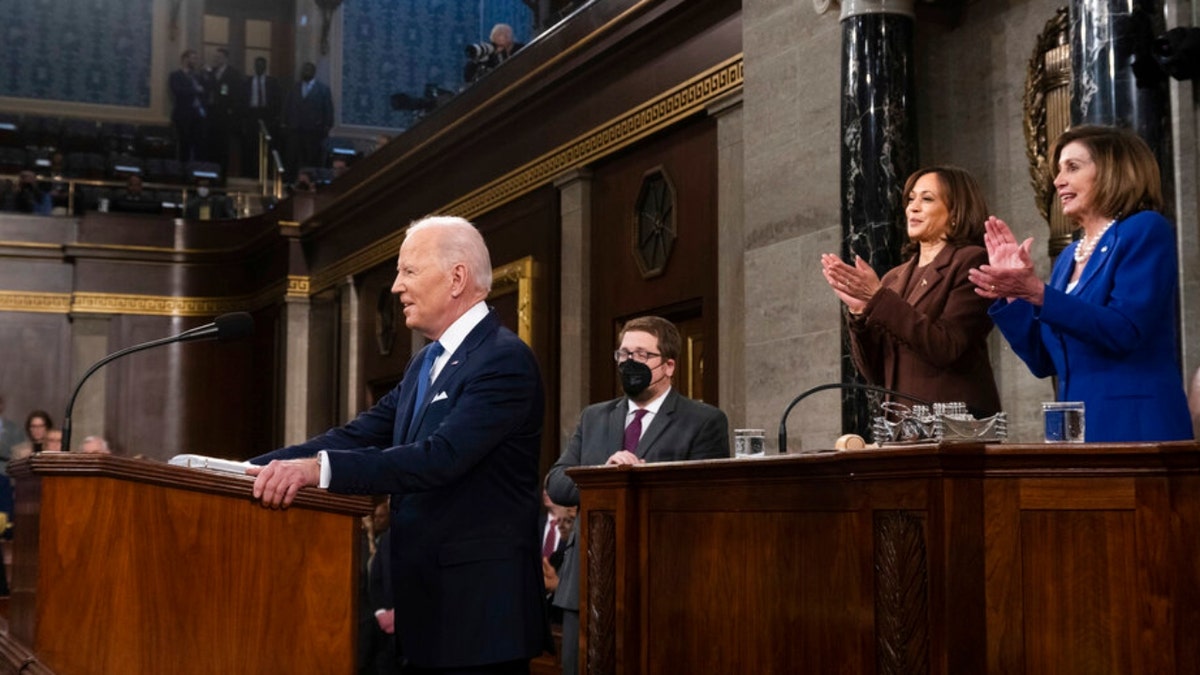Fox News Flash top headlines for March 2
Fox News Flash top headlines are here. Check out what's clicking on Foxnews.com.
President Biden on Tuesday announced new efforts to tackle the nation's mental health crisis as part of the "Unity Agenda for the Nation."
In addition to boosting mental health, the initiative includes fighting the opioid epidemic, helping veterans and ending cancer.
BIDEN'S STATE OF THE UNION SPEECH: TOP 5 MOMENTS
The president noted in his State of the Union address that schoolchildren have been especially impacted because of COVID-19 pandemic restrictions.
"The American Rescue Plan gave schools money to hire teachers and help students make up for lost learning," he said. "I urge every parent to make sure your school does just that. And we can all play a part – sign up to be a tutor or a mentor."
He also called for the strengthening of privacy protections on social media, a ban on targeted advertising to children and demanded that tech companies stop collecting personal data on children.

President Biden arrives to deliver his first State of the Union address to a joint session of Congress on at the Capitol, Tuesday, March 1, 2022, in Washington, as Vice President Kamala Harris and House Speaker Nancy Pelosi applaud. (Saul Loeb/Pool via AP)
Biden said the nation "must hold social media platforms accountable for the national experiment they’re conducting on our children for profit."
He pointed out that children were struggling due to social media harms, bullying, violence and trauma before the pandemic.
"Let’s get all Americans the mental health services they need. More people they can turn to for help, and full parity between physical and mental health care," he said.
Earlier Tuesday, the White House wrote in a release that two out of five adults report symptoms of anxiety or depression, with Black and Brown communities disproportionately undertreated.
NEARLY HALF OF BIDEN'S 500M FREE COVID-19 TESTS UNCLAIMED
Grief and trauma from the pandemic – fueled by losses and disruptions in routines and relationships – have "driven Americans to a "breaking point," with adolescents particularly affected.
The administration said the president's mental health strategy will aim to strengthen system capacity, connect more Americans to care and create a continuum of support.
To do so, the government plans to strengthen crisis response infrastructure and expand the supply, diversity and cultural competency of the mental health and substance use disorder workforce.
The White House said it would invest in proven programs that bring providers into behavioral health, pilot new approaches to train a diverse group of paraprofessionals, build a national certification program for peer specialists, promote the mental well-being of frontline health workers, launch a "988" mental health crisis service hotline, expand the availability of evidence-based community mental health services and invest in research on new practice models.
In order to connect Americans to treatment, it also intends to expand and strengthen parity, integrate mental health and substance use treatment into primary care settings, improve access to same-day mental health care for veterans, expand access to telehealth and virtual mental health options and support in schools, embed and co-locate mental health and substance use providers into community-based settings and increase behavioral health navigation resources.
CLICK HERE TO GET THE FOX NEWS APP
Lastly, the fact sheet noted that a "whole-of-society effort" is needed to address concerns.
The administration will increase mental health resources for justice-involved populations, work to set students up for success in school, expand early childhood and school-based intervention services and supports, train social and human services professionals in basic mental health skills, invest in social media's mental harms, put a stop to discriminatory algorithmic decision-making and institute stronger online protections for young people.
If you feel you’re in a mental health crisis, call the National Suicide Prevention Lifeline at 1-800-273-8255 to get immediate help.










































